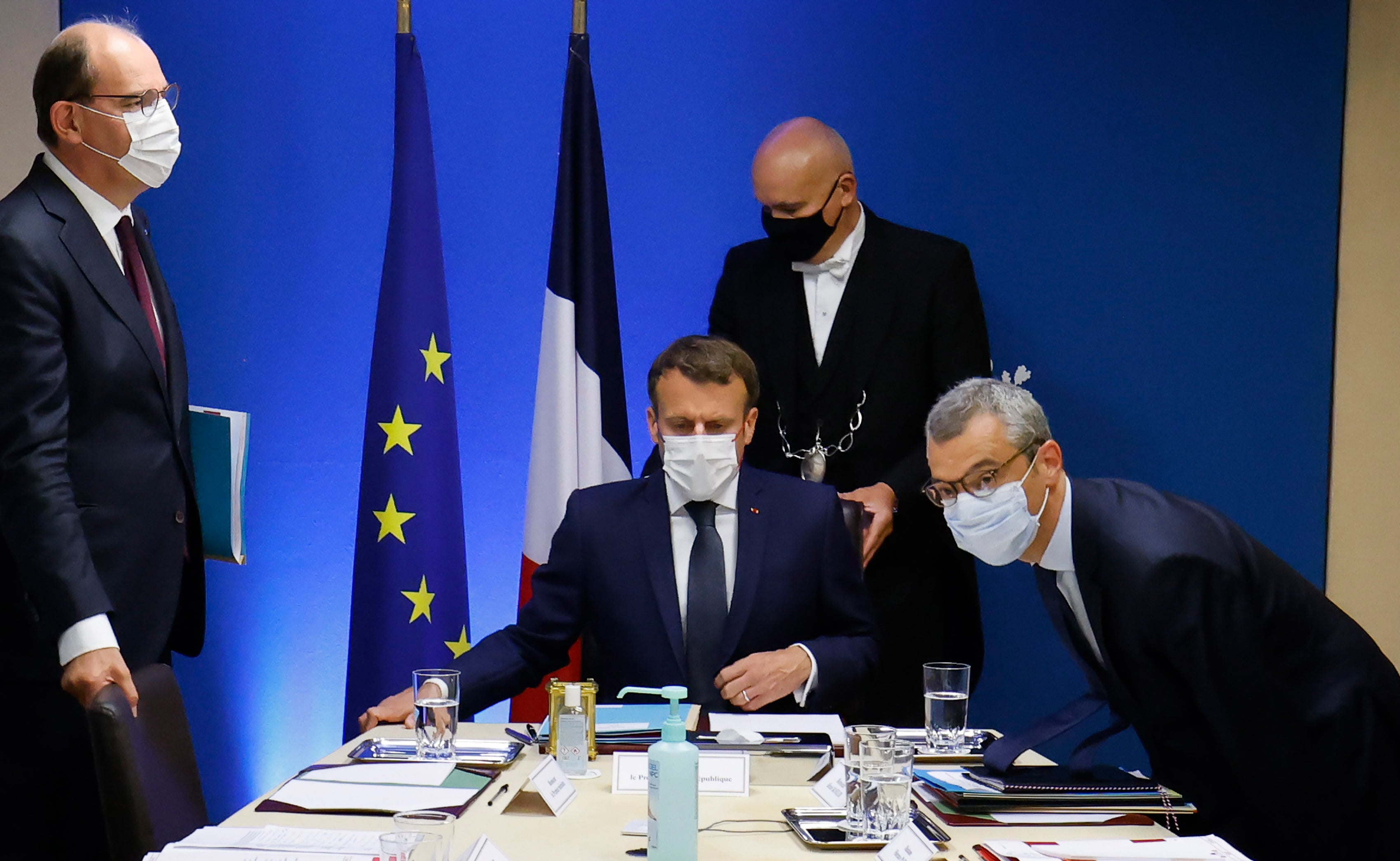Macron holds emergency cybersecurity meeting over Pegasus revelations as governments scramble to respond
This comes as the Israeli Parliament looks at curbing NSO export licences

Your support helps us to tell the story
From reproductive rights to climate change to Big Tech, The Independent is on the ground when the story is developing. Whether it's investigating the financials of Elon Musk's pro-Trump PAC or producing our latest documentary, 'The A Word', which shines a light on the American women fighting for reproductive rights, we know how important it is to parse out the facts from the messaging.
At such a critical moment in US history, we need reporters on the ground. Your donation allows us to keep sending journalists to speak to both sides of the story.
The Independent is trusted by Americans across the entire political spectrum. And unlike many other quality news outlets, we choose not to lock Americans out of our reporting and analysis with paywalls. We believe quality journalism should be available to everyone, paid for by those who can afford it.
Your support makes all the difference.French President Emmanuel Macron held an emergency cybersecurity meeting on Thursday to mull possible government action after reports his mobile phone and those of government ministers may have been selected as a potential target for powerful Israeli spyware called Pegasus.
French government spokesman Gabriel Attal told France-Inter radio that Mr Macron changes his phones regularly and is "taking the matter very seriously.”
He added that investigations are under way to determine whether the spyware created by Herzliya-based cyber company NSO group was actually installed on the phones and whether any data was retrieved.
The allegations have been roundly rejected by NSO that told The Independent they are “false” and part of a “vicious and slanderous campaign”.
But it comes as the Israeli parliament said it may seek to curb export licences to NSO. It has appointed an inter-ministerial team to assess reports based on an Amnesty International led investigation by 17 media organisations that said malware created by NSO group had been used in attempted or successful hacks of smartphones.
According to the Amnesty investigation, among the alleged potential targets were French President Macron, Morocco’s King Mohammed VI, the family of murdered Saudi activist Jamal Khashoggi, journalists and activists. In total the so-called Pegasus Project presented a list of 50,000 phone numbers belonging to over 1000 people that may or may not have been potentially listed for targeting.
The malware, which is among the most sophisticated in the world, can turn most phones into a spying device enabling the extraction of messages and data as well as secretly activating microphones and cameras.
The alleged revelations have sparked worldwide concern with German Chancellor Angela Merkel becoming the latest European leader to express alarm, saying on Thursday the spyware should be denied to countries where there is no judicial oversight.
Among NSO’s alleged governmental clients accused of deploying the spyware is Saudi Arabia, which denied the claims as “baseless” in a statement to Saudi State television on Wednesday.
Morocco’s head of public prosecution meanwhile has ordered an investigation into allegations that the Moroccan government may have tried to use the spyware to hack President Macron’s phone.
NSO has repeatedly denied the allegations telling The Independent it has only sold to 45 carefully vetted governments, and had shut down five systems when evidence was presented of misuse. However, staffers said they were currently investigating 37 mobile numbers off the back of the Amnesty-led investigation, some belonging to rights activists and journalists to check if they had been hacked with Pegasus, in violation of their contracts.
In a statement released Wednesday night an NSO spokesperson said “enough is enough” adding that the list of 50,000 numbers was in no way “a list of targets or potential targets of Pegasus. “
“The numbers in the list are not related to NSO group,” the statement read.
“Any claim that a name in the list is necessarily related to a Pegasus target or Pegasus potential target is erroneous and false.
“NSO is a technology company. We do not operate the system, nor do we have access to the data of our customers, yet they are obligated to provide us with such information under investigations.
“NSO will thoroughly investigate any credible proof of misuse of its technologies, as we always had, and will shut down the system where necessary
But in Israel, pressure is mounting on the defence ministry to halt export licences for NSO which are needed for it to sell Pegasus to clients.
The defence ministry defended the export licences saying it only approves export of cyber products to “governmental entities, for lawful use” and for the sole purpose of fighting crime and terrorism.
But an Israeli parliamentary panel may seek changes to the country’s export policy.
"We certainly have to look anew at this whole subject of licences granted by DECA," Ram Ben-Barak, head of the Knesset Foreign Affairs and Defence Committee, told Israel’s Army Radio, referring to the government-run Defence Export Controls Agency.
The former deputy chief of Mossad, the Israeli intelligence agency, added that Israeli government team "will conduct its checks, and we will be sure to look into the findings and see if we need to fix things here". He said proper use of Pegasus had "helped a great many people".
Join our commenting forum
Join thought-provoking conversations, follow other Independent readers and see their replies
Comments